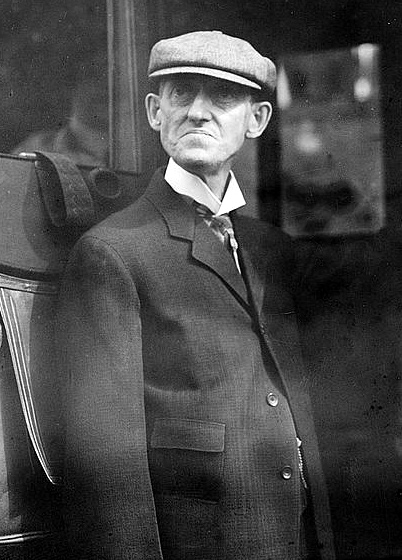Michael Weinreb outdoes himself at Grantland, with a historical piece explaining why three American sports leagues (MLB, NBA, NHL) settle championships with seven-game series. Why seven games? The opening:
“John T. Brush was an orphan, a Civil War veteran, and a robber baron. He was born in 1845, and by the 1880s, he was a prominent baseball owner, a crotchety tycoon who used his department-store fortune to purchase franchises in Indianapolis and Cincinnati before taking control of the National League’s New York Giants. It was Brush who first proposed an unpopular salary cap he referred to as the ‘Brush Classification Plan.’ It was Brush who harbored such a grudge against the American League that he refused to allow his Giants to play the Boston Pilgrims in 1904, thereby resulting in the first of the two World Series-less falls of the 20th century. The players disliked him; the media tore into him with a purplish rage. ‘Chicanery is the ozone which keeps his old frame from snapping,’ wrote the Sporting News, ‘and dark-lantern methods the food which vitalizes his body tissues.’
Brush died 99 years ago, en route to a sanatorium in Southern California to recuperate from a car crash. Unless you harbor a fetish for the dead-ball era or the history of Midwestern textile operations, you have almost certainly never heard of him. And neither had I, until one night, in the midst of yet another protracted postseason series, I thought of a simple question that seems to have no definitive answer. What I wanted to know was how the idea for a seven-game series had begun, and why it became the conventional wisdom among three of the four major professional sports in America, and why this format has come to feel so inherently equitable. And what I realized is that, as much as we would like to think that we have evolved over the course of the century since John T. Brush expired on that cross-country train, and as much as we believe that we’ve found new and better ways to quantify information, the structure of determining a champion in professional sports is still based as much on superstition as it is on rational thought.”

